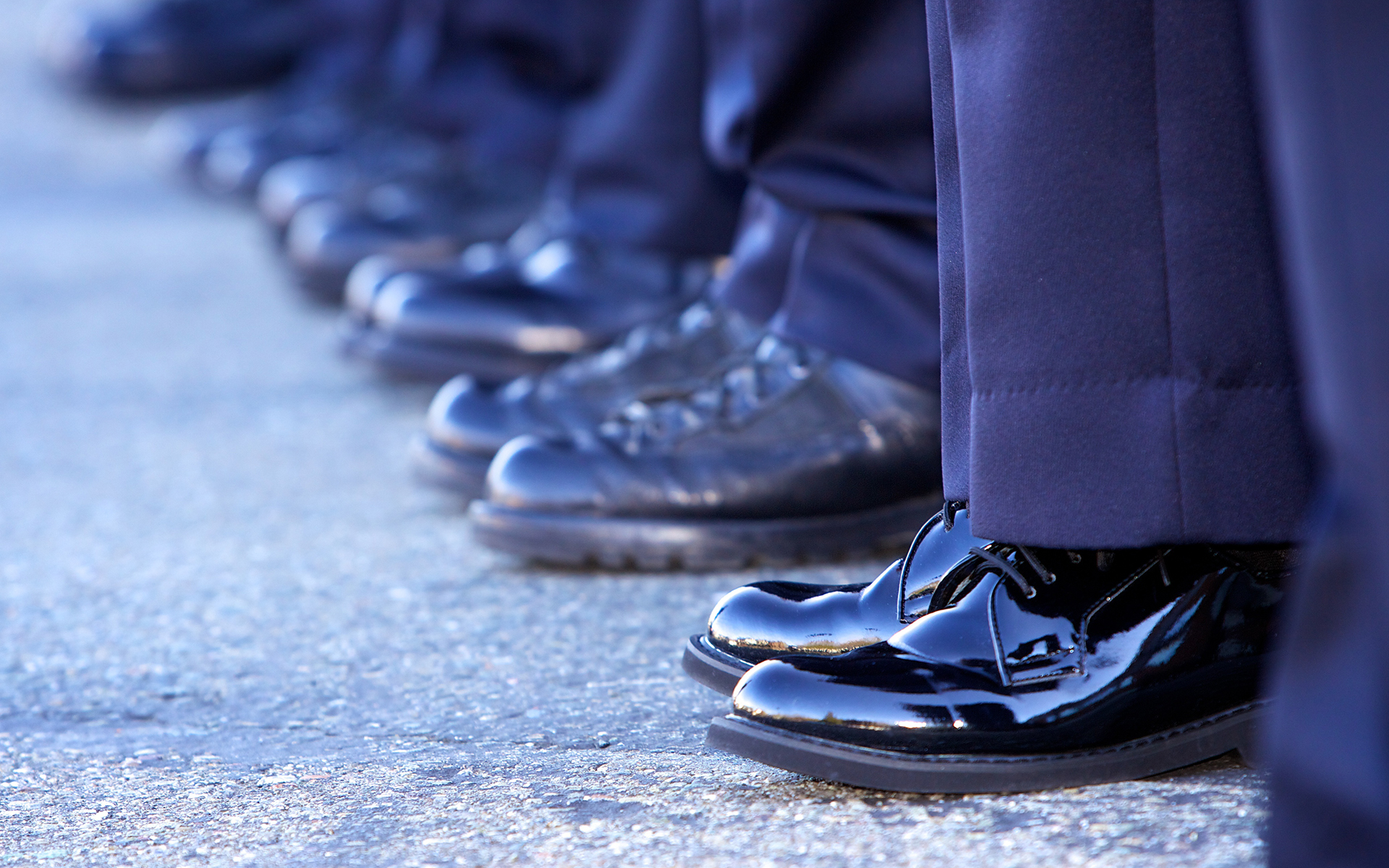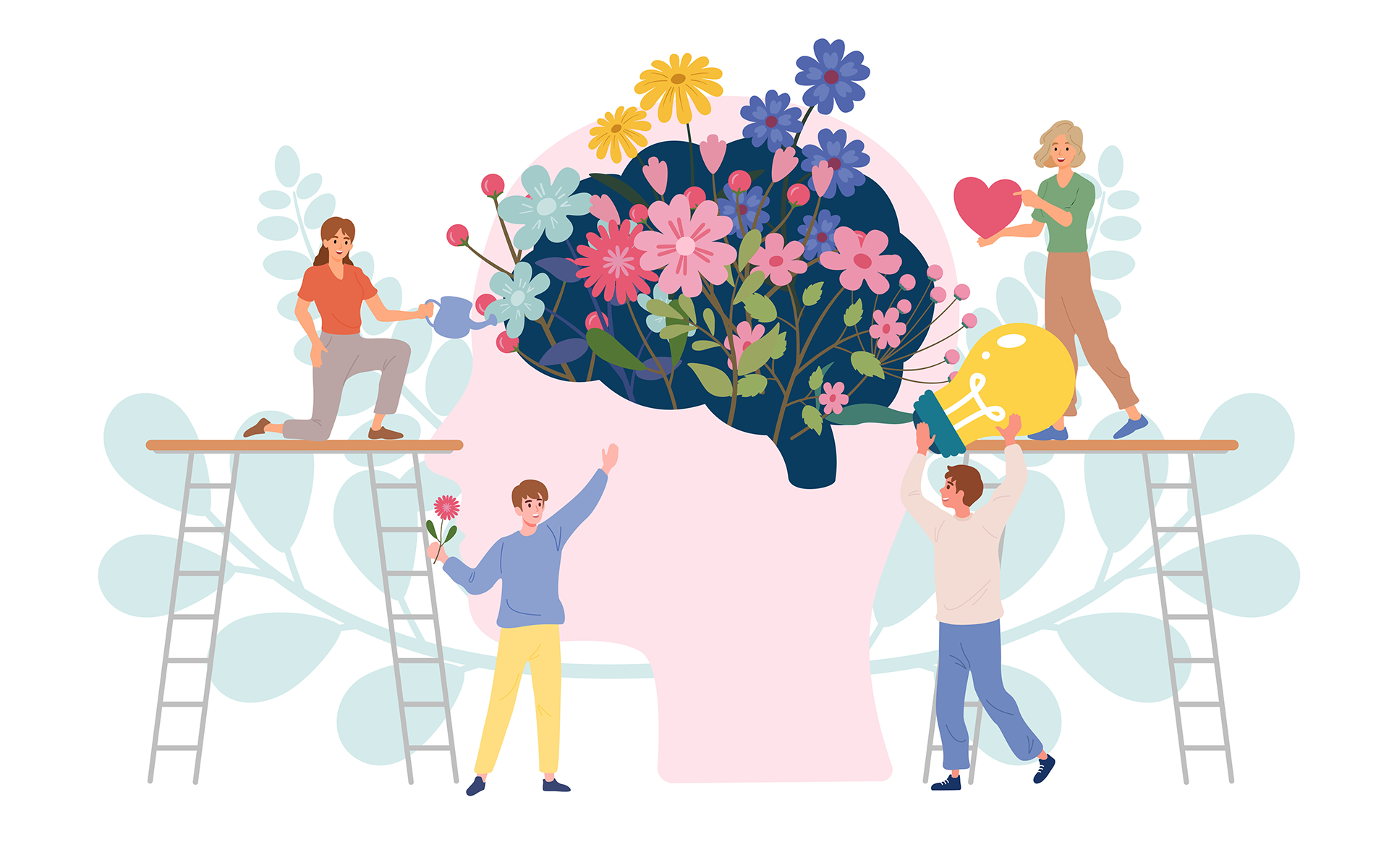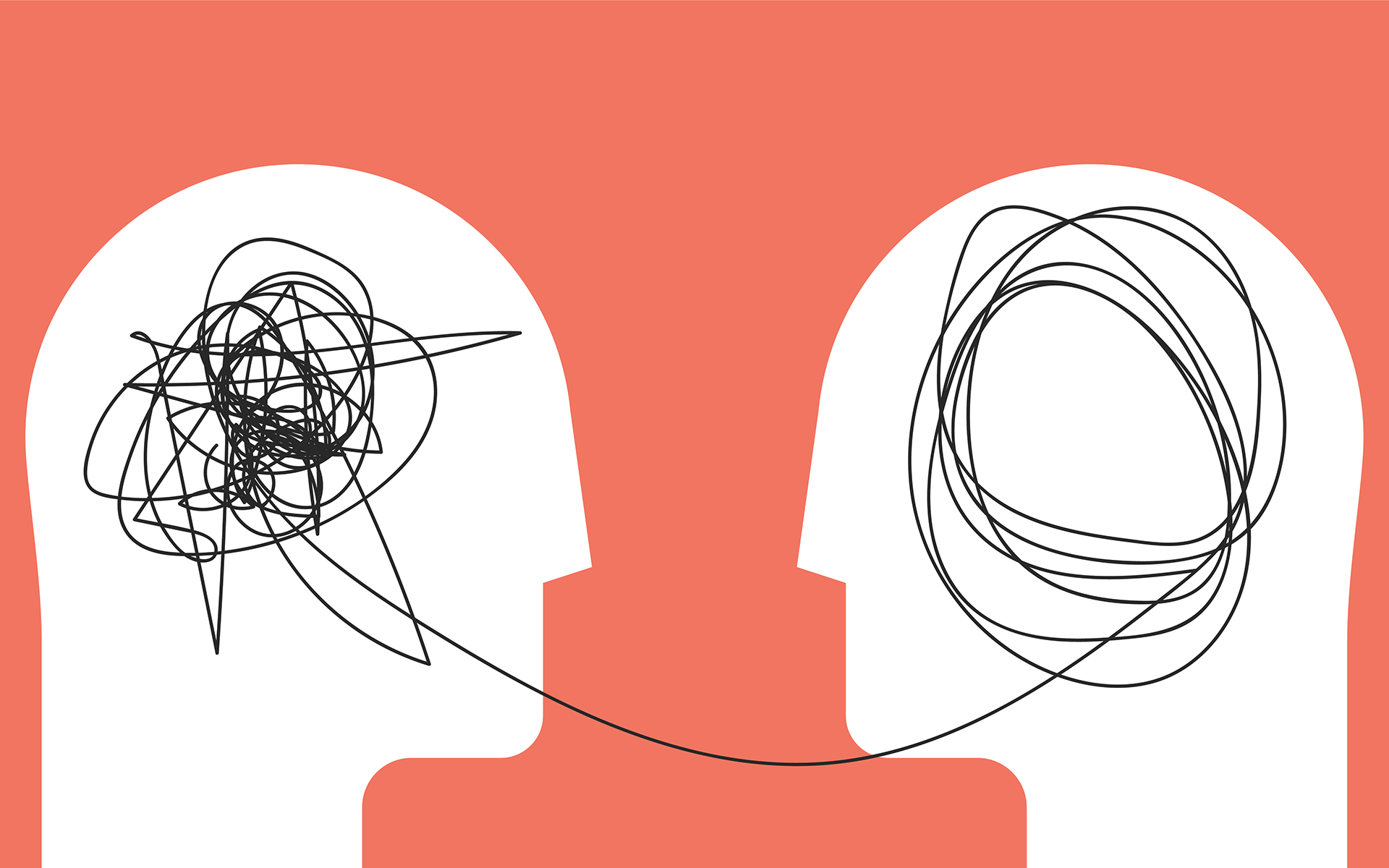Listen to the full conversation:
Founding Editor Barry Boyce Speaks with Former Police Lieutenant Richard Goerling
As protests continue across the United States, video footage of police officers acting in reprehensible ways has gone viral, resulting in widespread criticism of the police and a call for defunding.
Richard Goerling is a certified mindfulness trainer and former police lieutenant, who specializes in teaching resilience and performance skills to first responders. In this interview, he explores the biases that exist in policing—and explains how mindfulness can foster a more compassionate police force.
The Two Types of Change Policing Needs
“One of the greatest failures of police leadership is the failure to lead a culture—or maybe, more specifically—the failure to lead an ethos that is grounded in humanity, rather than grounded in tactics or grounded in equipment, or grounded in the good old boy network,” Goerling says.
Here are two types of changes he says the policing culture needs to see:
1. Systemic Change
“No matter how the institution of policing evolves, it is still a system. And systems, by their nature, are imperfect. And systems that are imperfect by their nature can and will cause harm on some level,” Goerling says.
Systemic change refers to a change in the institution as a whole—in this case, a change to the police force.
“No matter how the institution of policing evolves, it is still a system. And systems, by their nature, are imperfect.”
“Systemic change is going to look like a lot of different things,” Goerling says. That could mean a change in federal or state laws, along with the way policing is conducted in the field.
“We also need some changes in how police chiefs…interact with other community leaders,” he adds.
2. Organic Change
Organic change refers to a change in actions of each individual police officer.
In order to deliver on the intention behind any systemic changes, we need “changes at the ground level, changes in skills training for first responders, for police officers,” says Goerling.
“[A] large body of men and women need to be resourced with skills so that they know what their ethos is when they show up to work,” Goerling says. “And that’s really been missing in police culture in America today.”
In many cases, training begins from the inside out—and mindfulness can be vital in creating a foundation for personal transformation.
“[A] large body of men and women need to be resourced with skills so that they know what their ethos is when they show up to work,” Goerling says. “And that’s really been missing in police culture in America today.”
How Mindfulness Fosters Compassionate Policing
“What we have today is this extremist position between what people expect in the community, and what police culture is delivering,” Goerling says. “That reckoning, I think, is a very positive thing—even though it’s going to be very painful, in many ways.”
Training in mindfulness skills can help officers boost their sense of awareness and compassion, so they’re less likely to rush to judgment.
There are three central areas Goerling recommends building awareness around:
- Awareness of thought: By encouraging officers to notice what they’re thinking about during a conversation, or the middle of a critical incident, they can notice when judgment arises. “How do we work with that judgment so that the judgment bias doesn’t become the tail that wags the dog?” he asks.
- Awareness of emotion: By noticing when anger or stress begins to rise, officers can begin to regulate their reactions. “We can just skillfully be where we are and know that whatever is emerging…is a normal part of the human experience, and that we can regulate it with skill in order to show up and do the work that we do in policing,” says Goerling.
- Awareness of body: Occupational stress and trauma can impact an officer’s body, and can be resolved through mindful movement and other interventions.
A Few Bad Apples, Or An Entire Rotten Barrel?
A common refrain following acts of police brutality appeals to the idea of a “few bad apples” on a police force, insisting not all police officers act that way. But is that really the case?
In answer to that question, Goerling points to research from Philip Zimbardo, who conducted the infamous Stanford Prison Experiment.
“We say, ‘Oh, it’s that there’s a bad apple in the barrel and the bad apple is toxic,’” Goerling says. “And Phil flips that argument upside down. He says maybe…the model we should consider is not that there’s bad apples. It’s that the barrel itself is bad.”
That barrel is a metaphor for the police force. It means that even when there are good officers, they are unable to act independently to do good. The recent video of an elderly man cracking his head on the sidewalk after being pushed to the ground by police is a clear example, Goerling says.
The model we should consider is not that there’s bad apples. It’s that the barrel itself is bad.
“The way they’re trained and the way they’re thinking, because they’re not guided by an ethos that allows critical thinking, they just roll right over a 75 year-old man,” he says. “If you isolate any one of those individuals, they’d probably tell you that they wanted to do something different. But the forces of the barrel are powerful.”
In order to improve policing, Goerling says, we need to create a new “barrel,” one that encourages critical thinking and places humanitarianism at the forefront. So how can we make that happen?
Addressing Bias in Policing
“One of the most significant biases in police leadership and police culture is the refusal to believe that there’s bias at all,” Goerling says.
He explains that bias often stems from the traumatic nature of policing. As police officers witness more crime, they become more burnt out and judgmental, forming opinions of people based on what they’ve witnessed previously.
“This notion of being cynical is a predictable outcome of being a police officer if it’s not properly mitigated,” Goerling says. But it’s more than just cynicism—over time, this mistrust can lead to racism.
“Bias emerges and it creates all sorts of failures of judgment,” Goerling says. “It creates all sorts of discriminatory behavior, and that’s a very serious problem in policing across America.”
On the other hand, Goerling says, all of us have implicit biases that we must work through.
“One of the most significant biases in police leadership and police culture is the refusal to believe that there’s bias at all.”
“We bring our own baggage to policing. And if we’re not willing to sit with that baggage…then it just stews and fosters, and becomes part of our equation of how we show up in the world. And it becomes unconscious.”
While there is no one-size-fits-all approach to mindfulness training for police officers, Goerling says it must address occupational trauma and encourage a growth mindset.
“It comes back to these fundamental skills of teaching self-awareness, self-compassion, self-regulation, and then awareness and compassion for the world around us,” he says.
But no matter what a more mindful police force may look like, it won’t be easy to get there.
“We’re going to the social justice gym here, and we’re going to get a really kick-ass workout. And it’s hard. We have to step into that space of self-reflection, and personal and professional growth—and I’m not convinced that there is inspiration to do that,” Goerling says. “In some places there will be. And in those places, I think community can support that effort of transformation.”
“I think communities are going to see some remarkable reform and transformation with a new model of community collaborative public safety,” he adds. “From my perspective, I’m not sure how we can achieve this kind of transformation without the intensive integration of mindfulness skills training.”
Listen to the full interview for more on what the mindfulness community can do to support the movement toward widespread integration of mindfulness within policing.
Founding Editor Barry Boyce Speaks with Former Police Lieutenant Richard Goerling
read more
7 Ways Mindfulness Could Support Compassionate Policing
Founding Editor Barry Boyce considers what contribution mindfulness practice might make to the change people are seeking in police departments.
Read More
Mindful Policing: The Future of Force
With police violence in the news, and public scrutiny on the rise, cities turn to mindfulness to help officers deal with the stress of the job.
Read More
Richard Goerling: Mindful Policing
Richard Goerling, a police lieutenant, talks about how mindful and empathic policing will help police, and the people they have sworn to serve and protect.
Read More
“Police Culture in America Has Lost Its Way”
A police officer of two decades opens up about the protests in Ferguson and New York City and implicit bias in policing.
Read More











